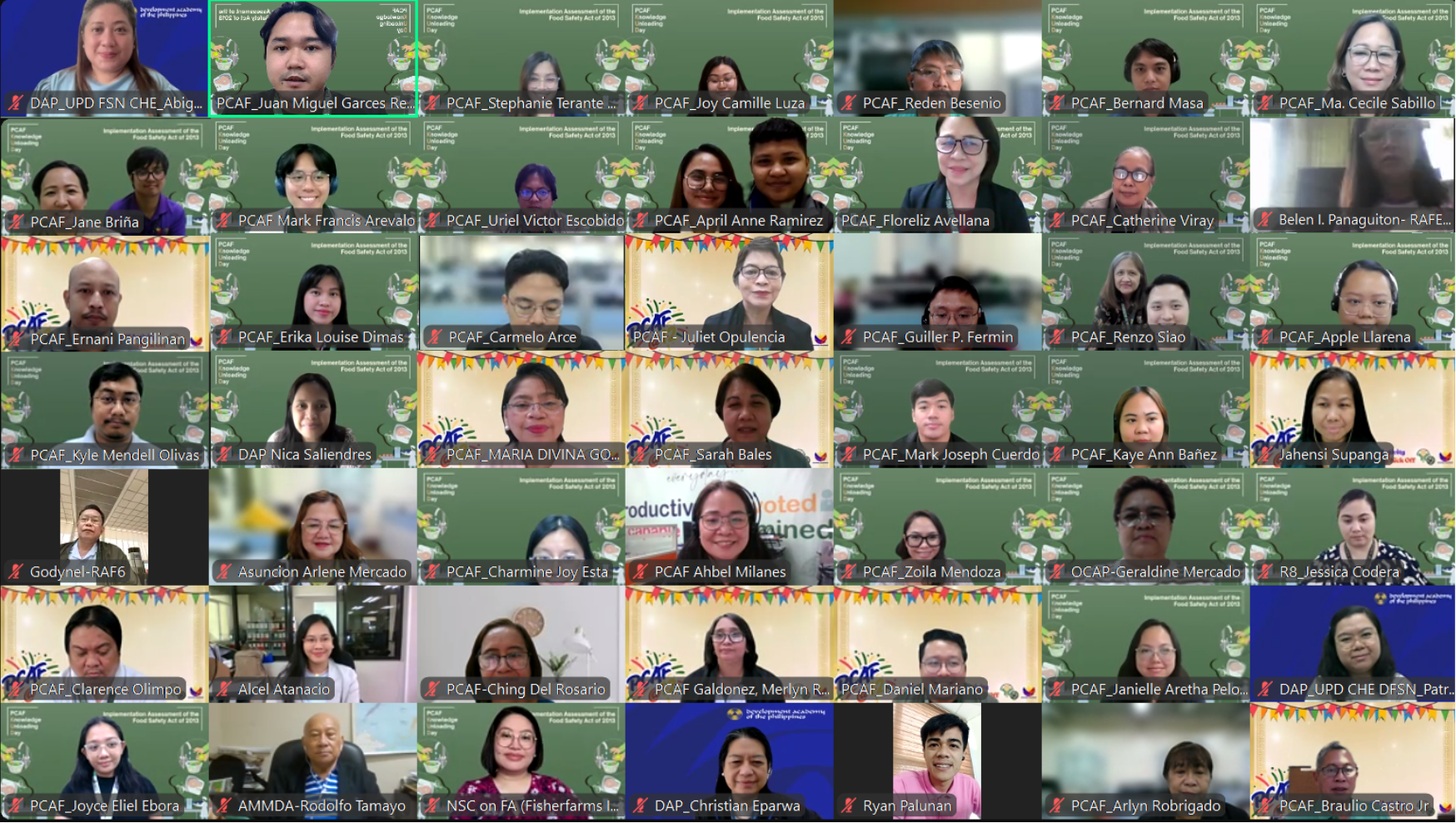
In pursuit of evidence-based policymaking and inclusive stakeholder engagement, the Philippine Council for Agriculture and Fisheries (PCAF) hosted its second Knowledge Unloading Day (KUD) of the year on June 13, 2025. Featuring the Implementation Assessment of the Philippine Food Safety Act of 2013 (RA 10611), the virtual activity gathered representatives from the National Sectoral Committees (NSCs), Agricultural and Fishery Councils (AFCs), and PCAF personnel for a comprehensive presentation of findings.
The study—conducted by the Development Academy of the Philippines (DAP) and commissioned by PCAF—examined the extent and effectiveness of RA 10611’s implementation over the past decade. It aimed to evaluate how well the law has enhanced food safety standards and protected public health, while offering evidence-based recommendations for future improvements.
DAP Assistant Professor Abigail Rustia, PFT, MSc, and lead expert of the study detailed the law’s notable progress—such as increased stakeholder training, science-based regulatory alignment, and enhanced inter-agency coordination—while also highlighting persistent challenges including limited resources, overlapping agency mandates, inconsistent enforcement at the local government level, and the lack of centralized data systems.
“Agencies face critical resource constraints, particularly in laboratory capacity and manpower,” the report noted. Moreover, external factors such as the African Swine Fever outbreak, the COVID-19 pandemic, and increasing global trade requirements have further stressed existing food safety systems.
In her opening message, PCAF Deputy Executive Director Julieta Opulencia underscored the event’s dual role in knowledge sharing and inspiring action. “We will be able to identify our collective roles—as PCAF employees and valued stakeholders—in fortifying the Food Safety Act of 2013,” she said. “Food safety is a shared responsibility across the entire chain—mula sa sakahan hanggang sa hapag-kainan.”
The event also served to inspire the private-sector-led NSCs and AFCs to craft informed policy resolutions based on the study’s insights. These resolutions are expected to contribute to advancing consumer protection and boosting the global competitiveness of Philippine agricultural and fisheries products.
Key recommendations from the DAP report include clarifying agency roles, increasing budget allocations for laboratories and food safety personnel, modernizing traceability systems, and integrating emerging technologies like blockchain and AI for real-time risk monitoring.
As part of PCAF’s 12th-anniversary celebration and aligned with World Food Safety Day, the KUD reaffirmed the agency’s commitment to raising awareness and improving regulatory outcomes through inclusive, data-informed dialogue.
With strengthened collaboration between government and stakeholders, PCAF aims to chart a safer and more resilient food system for all Filipinos—mula sa sakahan hanggang sa hapag-kainan. | Joy Camille Luza











